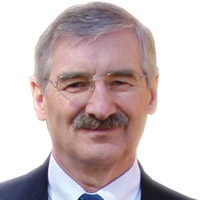
Cultivating healthy sexuality in our conference
by VMC Staff
It was months in the planning. Representatives from the Congregational Life Commission and the Faith & Life Commission pondered how to model a way of talking about healthy sexuality in the congregational setting.
One hundred people from 24 congregations gathered at Waynesboro Mennonite Church on Saturday, November 3, to worship, listen, share around tables, and worship again.
As we acknowledged God’s gifts of creation—culminating in the human, male and female, we also confessed our broken-ness (not living up to God’s wonderful intentions for us).
Duane Beck, pastor of Raleigh Mennonite Church, then led in setting a Biblical foundation for our reflection. Using the story of the woman anointing Jesus (Luke 7:36-50), Duane noted the
difference between relational sexuality and genital sexuality.
That story leads easily into a definition of sexuality: The God-given drive to relate to another person in loving, caring, and trusting ways. We have the physical, mental, emotional and spiritual capacities to care for another person. (Duane Beck, 2000)
Distinguishing between relational and genital sexuality can be more readily understood by considering sexuality on a continuum.
Finally, Duane offered some safeguards for congregational leaders as they work with their own sexuality. The core task is to guard one’s heart. Maintaining an honest journey with the Lord that acknowledges our temptations in prayer—recognizing the valued personhood of those to whom we are drawn in unhealthy ways—will help us to love as Jesus loved instead of using others for our own gratification.
Ken L. Nafziger, VP for Student Life at EMU, followed with a review of the cultural context in which congregations must do their nurturing work. He gave eloquent witness to the healing power of compassionate congregations in the midst of an alienated, misdirected culture. With the pervasiveness of pornography, parents now must work with establishing controls for TV and internet usage for their children—unknown to previous generations.
A key part of the day was time spent around tables where participants confidentially considered questions like:
-
1. What would you say is the most formative memory in your development in human sexuality? Who or what was the source? In what ways was it timely and accurate information?
2. What do you wish you would have heard from home and the church?
3. What from your growing up experience in your family of origin has shaped your adult view of human sexuality?
4. If you are a parent, how have you tried to teach your children about healthy understandings of human sexuality? What might you have done differently?
We tried to model a way to engage this sensitive subject. In the evaluations, participants overwhelmingly said ‘thank you.’
.

